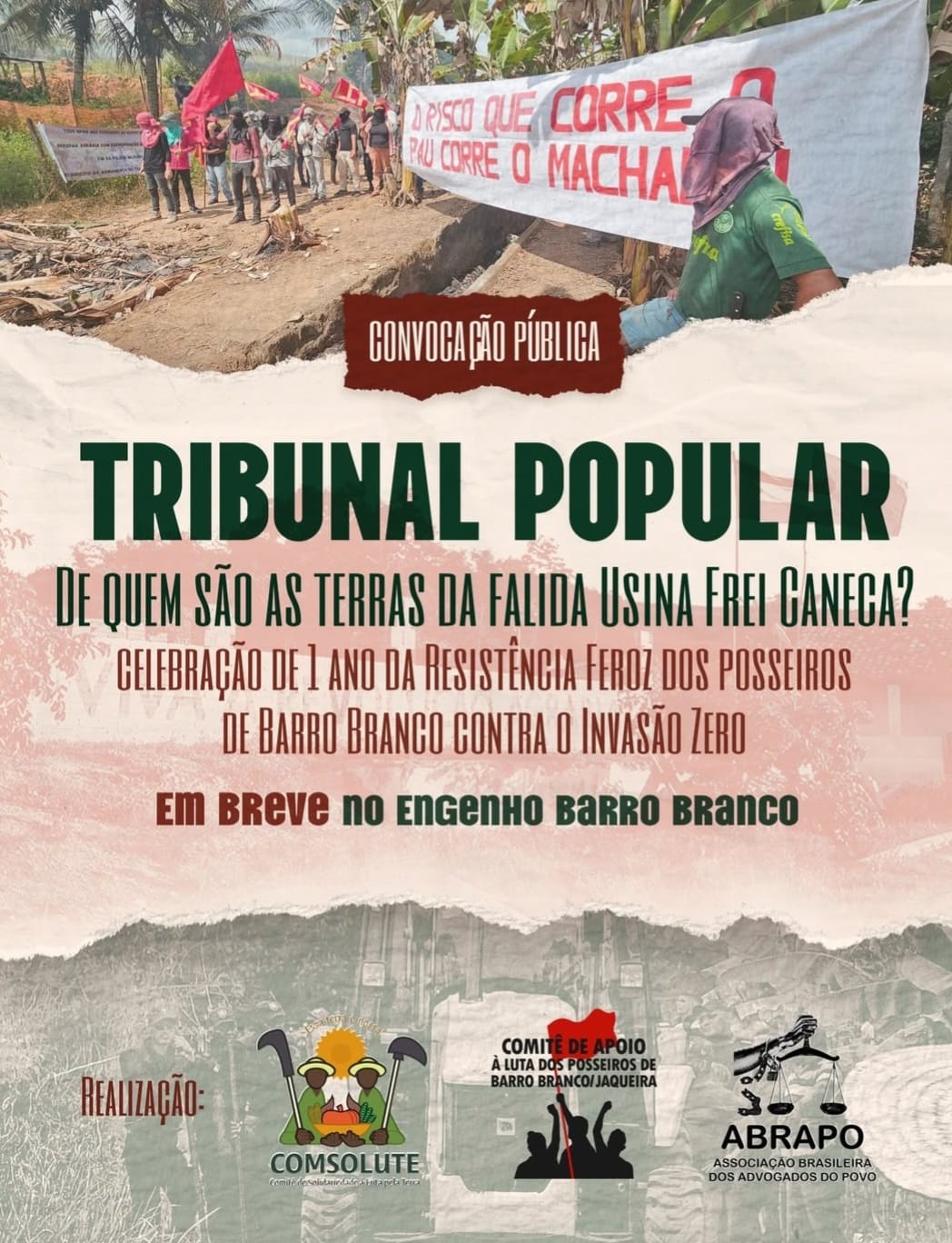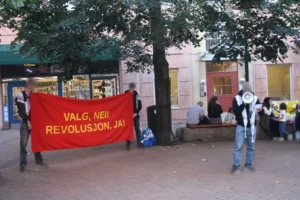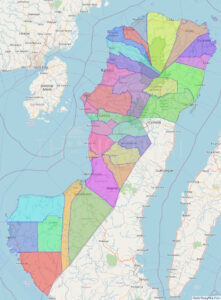
People’s Court to Judge the Latifundium of Jaqueira on the First Anniversary of the Fierce Resistance of Barro Branco
On October 5, the event “People’s Court – Whose Land is the Inactive Frei Caneca Mill?” will be held to judge the latifundium of Jaqueira. The event will take place on October 5th and will be promoted by the Committee of Solidarity for the Struggle for Land (COMSULATE), the Support Committee of Barro Branco, and the Brazilian Association of People’s Lawyers – Gabriel Pimenta (ABRAPO). It will also have the support of other organizations, including the League of Poor Peasants (LCP).
The Court will be held to commemorate the first anniversary of the Fierce Resistance of Barro Branco, when peasants organized by the LCP, resisted a criminal attack by more than 50 paramilitaries from the terrorist group Invasão Zero, protected by the Military Police. Supported by residents from nearby areas and democratic students, the peasants of Engenho de Barro Branco injured the group’s vice president and drove away the henchmen.
In the statement released for the event, it is highlighted that the Frei Caneca Mill, established in 1886, is located in a region inhabited by indigenous and peasant communities that today face the denial of their basic rights, such as the non-payment of labor rights and fraudulent land auctions. The attack on September 28, 2024, left peasants and a student injured, while the police remained indifferent. A year later, only the occupiers have been investigated, while the LCP is accused of being a “terrorist” organization by the latifundium and its political representatives.
The inaction of Incra and the role of the local judicial system date back to 1990, worsening the situation by ignoring the rights of the people. The Agrarian Prosecutor’s Office promotes individual negotiations with the company Agropecuária Mata Sul, instead of demanding the complete expropriation of the lands, seeking to divide the peasants and weaken their struggle.
All of this foreshadows an increased intensification of tensions and evident disputes over rights, which alone justify a people’s court for the crimes committed against these laws, regarding the right to life, housing, land, food production, and the restitution of labor rights denied to hundreds of families, many of whom have worked for the mill for nearly five decades. Hence, the importance and urgency of holding the People’s Court, which will include judges, lawyers, prosecutors, democratic figures, and numerous witnesses. Although it is not an official body, the decisions of the people’s trial have a political and legal orientation, as they will strengthen the defense of the just struggle of the occupiers, both politically, by expanding support for the decades-long resistance of peasant families and former employees of the Frei Caneca Mill, and legally, by creating new instruments to bolster their legal defense.
This event is a clear demonstration of solidarity from the Brazilian people in the struggle for land and the rights of peasant, Quilombola, and riverside communities, seeking to strengthen their political and legal defense. This is an opportune moment to unite all possible efforts in a strong resistance for visibility, confrontation, and denunciation of latifundium, its criminal practices against the poor in the countryside, and their organizations of struggle.

